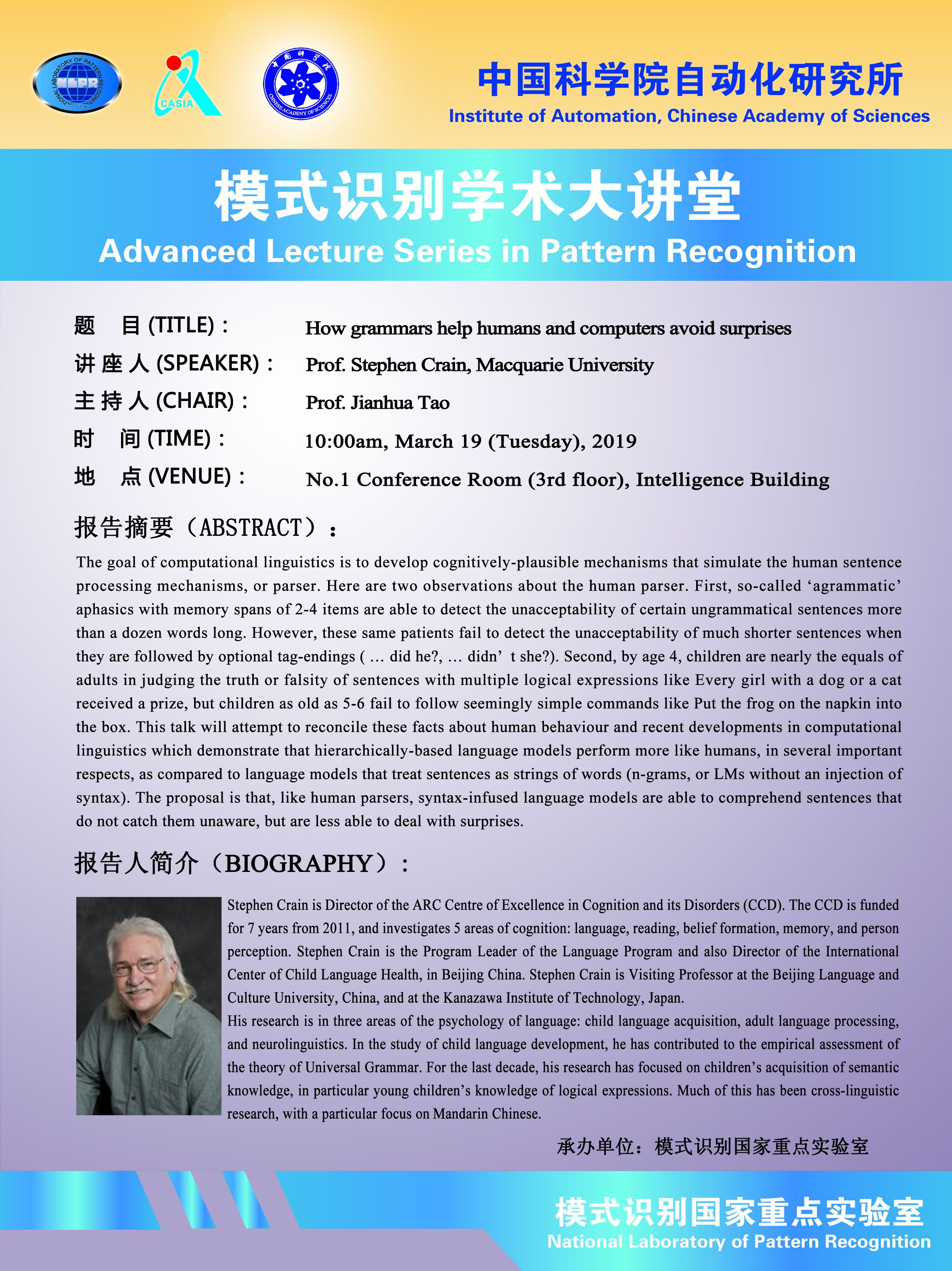模式识别学术大讲堂
advanced lecture series in pattern recognition
题 目 (title):how grammars help humans and computers avoid surprises
讲座人 (speaker):prof. stephen crain, macquarie university
主持人 (chair):prof. jianhua tao
时 间 (time):10:00am, march 19 (tuesday), 2019
地 点 (venue):no.1 conference room (3rd floor), intelligence building
报告摘要(abstract):
the goal of computational linguistics is
to develop cognitively-plausible mechanisms that simulate the human sentence
processing mechanisms, or parser. here are two observations about the human
parser. first, so-called ‘agrammatic’ aphasics with memory spans of 2-4 items
are able to detect the unacceptability of certain ungrammatical sentences more
than a dozen words long. however, these same patients fail to detect the
unacceptability of much shorter sentences when they are followed by optional
tag-endings (… did he?, … didn’t she?). second, by age 4, children are nearly
the equals of adults in judging the truth or falsity of sentences with multiple
logical expressions like every girl with a dog or a cat received a prize, but
children as old as 5-6 fail to follow seemingly simple commands like put the
frog on the napkin into the box. this talk will attempt to reconcile these
facts about human behaviour and recent developments in computational
linguistics which demonstrate that hierarchically-based language models perform
more like humans, in several important respects, as compared to language models
that treat sentences as strings of words (n-grams, or lms without an injection
of syntax). the proposal is that, like human parsers, syntax-infused language
models are able to comprehend sentences that do not catch them unaware, but are
less able to deal with surprises.
报告人简介(biography):
stephen crain is director of the arc
centre of excellence in cognition and its disorders (ccd). the ccd is funded
for 7 years from 2011, and investigates 5 areas of cognition: language,
reading, belief formation, memory, and person perception. stephen crain is the
program leader of the language program and also director of the international
center of child language health, in beijing china. stephen crain is visiting
professor at the beijing language and culture university, china, and at the
kanazawa institute of technology, japan.
his research is in three areas of the
psychology of language: child language acquisition, adult language processing,
and neurolinguistics. in the study of child language development, he has
contributed to the empirical assessment of the theory of universal grammar. for
the last decade, his research has focused on children’s acquisition of semantic
knowledge, in particular young children’s knowledge of logical expressions.
much of this has been cross-linguistic research, with a particular focus on mandarin
chinese.

|